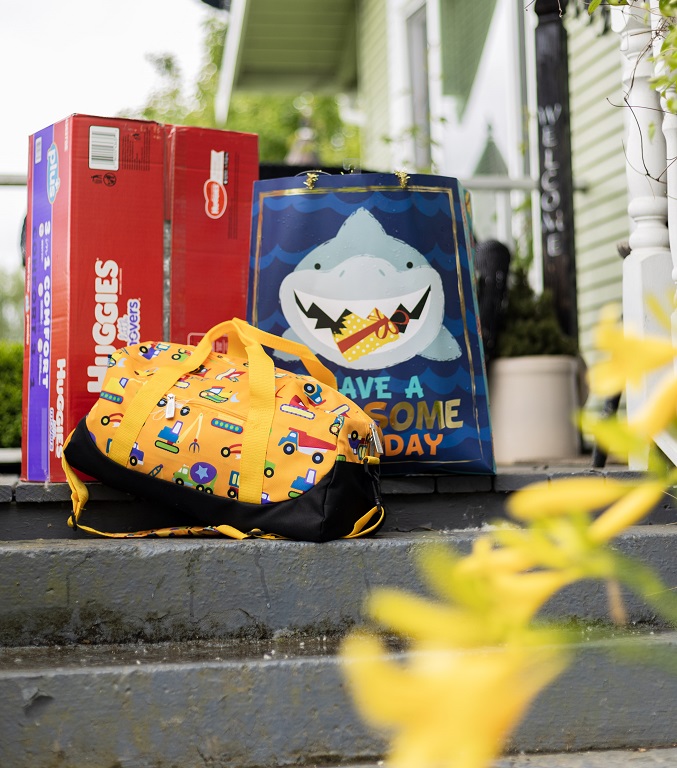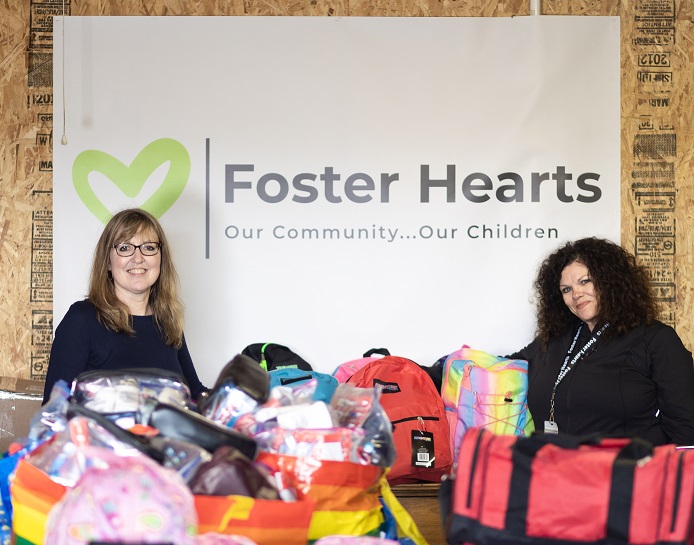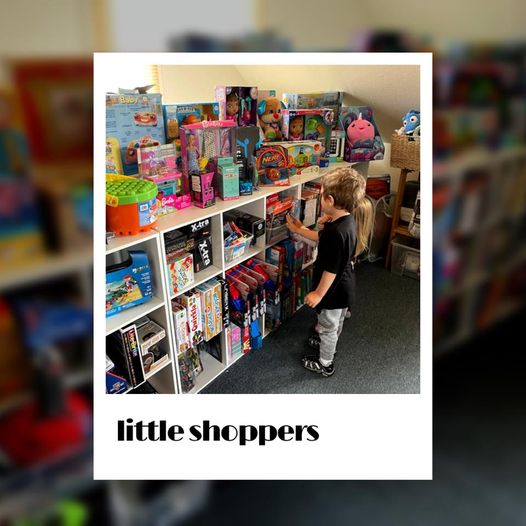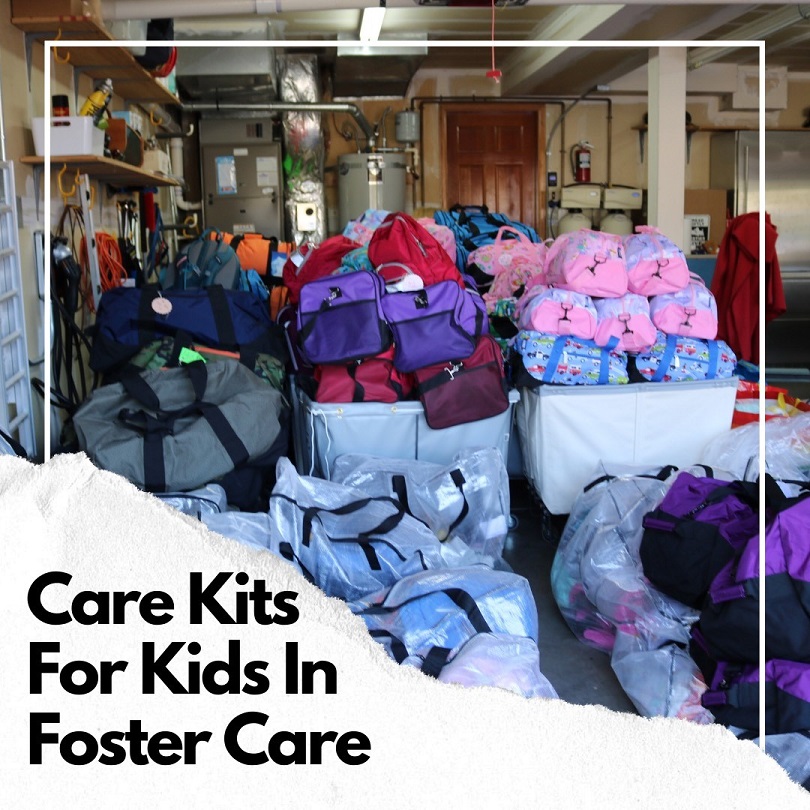
Foster Hearts: Filling in the Gaps for Foster Kids and Families
Foster Hearts is one those nonprofits that just grabs hold of your heart and doesn’t let go. Imagine kids left waiting in a social worker’s office with no place to go and only the clothes on their backs. Think of foster parents who receive monies too late to provide for the needs of their young charges, and you begin to understand the challenge. Foster Heart fills the gaping holes in our foster care system, to help the children and their new families, feel a little more whole.
We know that with Foster Hearts, our small grant award will be going to an important cause and serve critical needs for some very vulnerable children. We spoke with Executive Director Shala Crow to learn more about this work:
Kars4Kids: You have ample experience with foster parenting. Can you tell us about your professional and personal experiences with fostering?
Shala Crow: My husband and I have fostered over fifty children and are also the adoptive family of three siblings. In serving as the program director of Fostering Together, I served foster parents in a wide variety of ways, with training, events, support groups, and other resources. Our mission was to advocate for foster parents and helping them keep fostering.
When the Fostering Together program ended, the need was still there. I created Foster Hearts in order to continue the support for foster families. In addition to my nonprofit work, I served for 10 years as a representative for Washington State’s 1624 Foster Parent Consultation Team, Region 3, and recently became a volunteer member for the Foster Parent Association of Washington State (FPAWS).
Kars4Kids: How do you identify the foster families and children you help?
Shala Crow: Foster Hearts works closely with the Department of Children, Youth, and Families (DCYF), social workers, private agencies, court appointed advocates, and by word of mouth. We also have a large online presence and they find us there.
Kars4Kids: Foster Hearts was established in June 2020. How many foster children and families have you managed to assist since that time?
Shala Crow: In the short time we have been established we have helped over 1500 children in foster care within the 5 counties we cover.
Kars4Kids: Can you tell us some of the ways in which you’ve enriched the lives of the foster children who come to your attention?
Shala Crow: Foster Hearts provides care kits to children entering foster care. The kits include clothing and hygiene products for 3 days, along with other essentials like a book, diapers, pullups, formula, stuffed animal, and a blanket. We also have our Food 4 Fosters Program to help diminish food insecurities for children who are in foster care. Another great program is our Education & Experiences program where we can help fund camps, education needs, and normal childhood experiences like going to the zoo. Foster Hearts also has the Foster Closet program where children in foster care can come shop at the Foster Closet for free. We offer clothing, shoes, coats, socks, undies, hygiene products, toys, books, and equipment. This program is available for any child who resides in foster care. We provide wishes for Birthdays and work with other great programs to enrich the lives of children in foster care.
From one of our foster parents:
“I received care kits for a 2-month-old and a 9-year-old, and I can’t put into words how wonderful as well as helpful they were. You can tell there was alot of thought went into them and the quality of the items were so nice. As you know, the children came last minute under crisis situations and come with no belongings, and I did not have much time to prepare. To be able to get such a complete care kit with everything we might need, was really a blessing. I really appreciated the quality of the personal hygiene items that were in the bags as well as the nice P. J’s. It sure was nice to have pacifiers for the baby as well as a substantial number of diapers. My nine-year-old foster son really appreciated the fidget type toy and was excited to have his own nice duffle bag with pockets as well as a set of pajamas where the top and bottom matched.
Thank you again for providing such a valuable resource to foster families.
Sincerely, one very appreciative foster parent.”

Kars4Kids: What are some of the supports foster parents lack that Foster Hearts provides?
Shala Crow: Foster Hearts can provide caregivers with many concrete resources and offer effective system navigation and caregiver guidance with the expertise of the founders’ “boots on the ground” personal and professional experiences. Foster Hearts offers resources to foster parent that are not already met by Washington State or other programs. We are able to provide many extra supports such as care kits; apparel through our Foster Closet program; enrichment through our Education & Experiences program for youth in foster care, along with supporting them through our liaison program.
Kars4Kids: According to your website, one of the most needed items for foster children is underwear. That is somehow so heartbreaking. Why is such a basic necessity out of reach for so many of these children?
Shala Crow: Almost all children come into foster care with just what they are wearing. Coming into care happens so fast that they are typically not able to pack up any of their personal items. While foster parents are given a clothing stipend (typically a one- time $100 to $200 clothing voucher) to buy all the child’s clothing needs including shoes, coats, socks, and underwear, it most often comes 3-4 weeks after the child is placed in a foster home. While most foster homes try to keep extra clothing in the home, depending on the ages they are licensed for, this is not always possible.
Foster children deserve new clean underwear, and we try to help provide that. Many of our kids have issues with incontinence due to trauma and neglect and may go through a lot of underwear while adjusting to the new home. I had one 4-year-old little girl come to my home just for 2 nights until they found a relative she could go stay with. We had given her a new package of Dora the Explorer underwear to have the first night she came. When her social worker came to pick her up, she asked me if she could take the new undies with her. I said, “Of course! All the items we have provided for you since you came you can take with you.”
She jumped up and down; she was so happy and smiling and set to showing her social worker the undies still in the package. Sometimes what seem like small things to us, are big things to them.

Kars4Kids: Your website states that sometimes foster parents only learn that a child will arrive mere hours before this happens. How do they know to get in touch with Foster Hearts and what kind of assistance do you offer in a case such as this?
Shala Crow: It is very unusual that a foster home has a day or more to plan for a new foster child. We have set up our program with private Facebook groups for caregivers to post what they need, and they can also fill out the online request form, call, text, or email us for needs. Also, the child’s social worker will often call and give us a heads up about the child’s needs and how we can support those needs. Foster Hearts volunteers and staff personally deliver equipment, care kits, diapers, and more directly to the foster home. We can also open the Foster Closet to enable the caregiver to bring the child in to shop at any time. We know how stressful it can be when new children come into the home so we try to provide multiple ways they can reach us at any time.

Kars4Kids: One of the ways Foster Hearts helps foster children is by providing food and snacks to compensate for food insecurity. Can you talk about this? Don’t foster parents provide food for the children they foster?
Shala Crow: Foster parents do provide food to foster children. Licensed foster homes have a monthly reimbursement to provide for each child in their care. One of the problems is the reimbursement comes 30 days after the child or children are placed in their home. Relative or kinship providers, if not running a licensed foster home, do not, however, qualify for the reimbursement. The purpose of our Food 4 Fosters program is to offer resources and ongoing support to foster children and to those who care for them.
In our community are many who were directly impacted by Covid-19 and/or have a foster child experiencing food insecurities due to trauma and neglect. One of the consequences of the Covid-19 pandemic is food insecurity among foster family households. Food insecurity occurs when a household has difficulty providing enough food due to a lack of resources. Each foster or adopted child has a unique food history that you can “read” by paying attention to their behaviors around food. They have learned they cannot trust adults to feed them. They may fear they will not get enough to eat and are likely to hoard food if they can. A substantial portion of the families we serve (including foster families, adoptive foster families, and kinship/relative foster families) report having insufficient funds to purchase food or items for the children they foster or adopt who are experiencing issues with hoarding food or other expressions of food insecurity.
We also have a free online program for foster children to participate in called Kids Cook Real Food. This online program shows kids how to cook healthy and make healthy food choices.
From one of our foster parents: “We both have lost our jobs due to COVID-19 and just took in two new placements making us a family of 6 kids and 2 adults. We are really struggling to make it right now and could use some help. Both of our new foster placements have food hording issues that we need help with.”
Our program can help by providing food, gift cards for food delivery and diapers/wipes to foster homes and snacks provided for parent visits and to the Department of Children, Youth, and Families for children waiting in the office for placement. When foster children come into care, Washington State does not provide any funding for the child until 30 days after the placement of the child. This is leaving many of our foster families struggling to make it each month due to many who are now unemployed or staying home to homeschool our foster youth. We also provide snacks to our CPS offices for children who are in the offices waiting for their social worker to find them a foster home or if they are traveling longer distances to visit their parents.
Kars4Kids: How did the pandemic affect your work?
Shala Crow: The pandemic put us in overdrive. The needs are real for caregivers and foster children. While the number of children coming into foster care was reduced, the trauma and fear of the pandemic left many children with food insecurity, behavioral issues, a dearth of computers and internet for home schooling, stressed-out foster parents, and other significant problems. Foster Hearts was able to bridge the gap for many families regarding clothing, food, diapers, formula, computers, and more. We did a lot of porch drop-offs and phone calls, walking parents through tough times and the difficult behaviors of the children they were caring for. Many foster homes were struggling at Thanksgiving and Christmas. We were able to offer Thanksgiving baskets and holiday gifts for those who needed the extra support.
Kars4Kids: What’s next for Foster Hearts?
Shala Crow: What we know for sure is that unfortunately, there will always be kids coming into foster care, and there will always be foster parents needing support and resources. We have expanded this year to supporting the Extended Foster Care Youth program for kids ages 18-21 who have aged out of foster care and enrolled in this DCYF-provided program. This program requires participants to be enrolled in college and with a part time job.
We also would like to start in-person foster parent support groups as well as classes for birth and foster children. We hope to do all these things once Washington State allows us to start meeting in person in larger numbers again. As foster care continues to change so do the needs of foster families, and we hope to be able to pivot our programs to meet those needs head on!